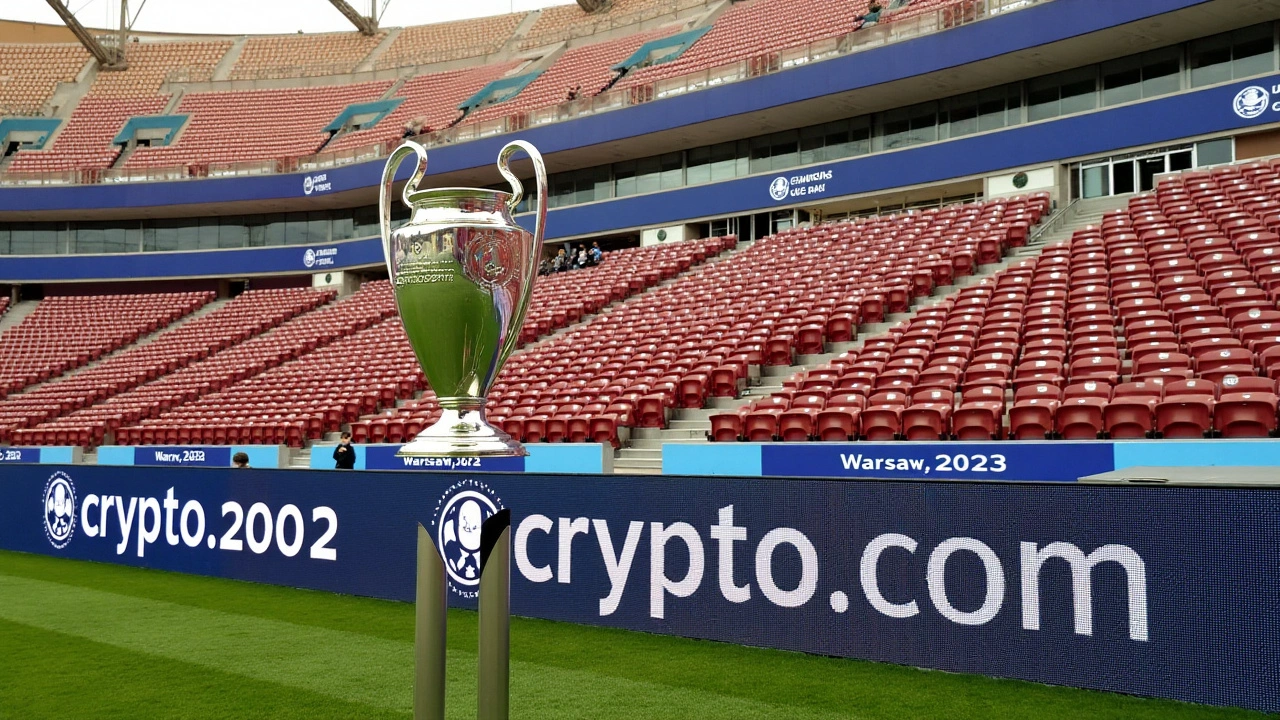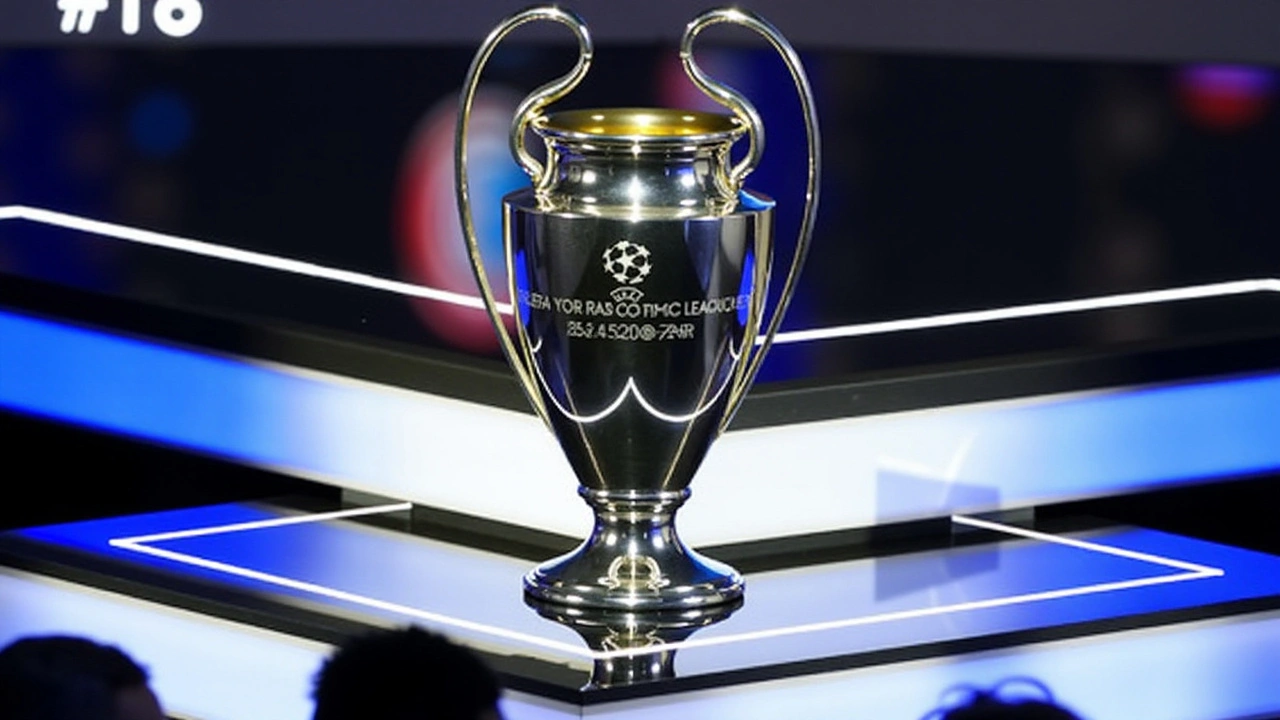A New Dawn for the UEFA Champions League
The UEFA Champions League, Europe's most prestigious club football competition, is poised to usher in a new era with the commencement of its expanded format. Set against a backdrop of apprehensions and excitement, the league will now feature 36 teams participating in a unique league phase, significantly altering the traditional format that fans and clubs were accustomed to.
The revamped format introduces eight additional teams compared to the previous seasons, setting the stage for these clubs to participate in eight matches against eight different opponents. This ensures that no two teams will meet more than once during the league phase, a deliberate move designed to inject unpredictability and elevate the stakes of every game. This expansion aims to break the monotony of the conventional group stage and mitigate the risk of any predictability that might have deterred viewers.
The Structure and Its Implications
With the introduction of these changes, the top eight teams at the conclusion of the league phase will secure automatic qualification for the last 16. This leaves those from ninth to 24th place to tussle in a play-off round for the remaining spots, while teams finishing 25th or lower will face elimination without the solace of entering the UEFA Europa League. This structure is devised to keep clubs on their toes, raising the competitive intensity across the board.
This transformation in the competition’s framework is seen as a move to counterbalance the threat posed by the potential formation of a Super League by top European clubs, which had been gaining traction. By creating a more dynamic and inclusive system, UEFA hopes to preserve the excitement and integrity of the Champions League.
The Road Ahead: Key Matches and Fixtures
As the tournament gets underway, football enthusiasts are already marking their calendars for some of the season's most eagerly anticipated fixtures. Historical powerhouses and recent champions are set to cross paths in what promises to be thrilling encounters. Matches like Real Madrid versus VfB Stuttgart, AC Milan clashing with Liverpool, and Manchester City taking on Inter Milan are drawing significant attention. Fans of Monaco and Barcelona, as well as Red Star Belgrade and Benfica, will also be treated to high-stakes matchups.
UEFA President Aleksander Ceferin has expressed strong support for the new format, emphasizing its potential to enhance the overall vibrancy and allure of the competition. He believes that the expanded league will democratize opportunities and render each fixture more consequential, maintaining that this will ultimately benefit clubs, players, and football’s global audience.
Concerns Over Player Welfare
However, not all voices in the football community echo Ceferin’s optimism. Among them, Real Madrid’s accomplished coach Carlo Ancelotti and the worldwide footballers' union FIFPro have raised red flags about the potential for player burnout. Ancelotti, known for his experience and success at multiple top-tier clubs, articulated the concern that the increased number of games could profoundly impact player health. Enhanced schedules necessitate adequate rest and recovery, which may be compromised amid such demanding fixtures.
The global footballers' union, too, underscored the necessity of prioritizing players' health. They advocate for a rigorous examination of how expanded fixtures could contribute to fatigue and potential injuries. This discourse highlights a critical dialogue in modern sport: balancing commercial interests with the physical and mental well-being of players.
Financial Incentives
From a financial standpoint, the restructured Champions League presents substantial rewards, with the winning team set to receive over 86 million euros in prize money. This figure excludes the additional income that clubs can generate from television rights and performance-based bonuses. The significant monetary allure seeks to ensure robust competition and commitment to the tournament from all participating clubs.
As the Champions League aligns itself with contemporary demands and reshapes its ethos, UEFA's strategic evolution marks a notable chapter in football history. Such changes are a testament to the sport’s adaptability and enduring appeal, seeking to remain engaging and relevant in a rapidly evolving landscape.
The Legacy and Future of European Football
Ultimately, the expanded Champions League is more than just a shift in format; it represents a broader vision for the future of European football. By inviting a more extensive range of clubs and opening the field to greater competition, UEFA aims to foster a more inclusive and exciting environment. While the journey begins with some uncertainties and challenges, the long-term outlook suggests a deeply enriched viewing experience for fans and a more complex arena for clubs to navigate.
The ongoing dialogue around player welfare, commercial gains, and competitive integrity will undoubtedly shape the next chapters of this transformative journey. As the first whistle blows in this new era, the world of football eagerly watches, poised for fresh narratives, iconic matches, and the unforgettable moments that only the Champions League can deliver. This season, every game carries the promise of history in the making.

Looking Ahead
In the coming months, much attention will focus on how teams adapt to these changes. The dynamic matchups, combined with the constant possibility of unexpected outcomes, ensure that each phase of the competition remains compelling. Not only will fans relish the excitement of diverse encounters, but clubs too will strategically realign their approaches to maximize their performance within this new competitive matrix.
The debate on the expanded Champions League format and player welfare is likely to persist, catalyzing further discussions on how to balance competitive edge with humane practices. As football continues to grow on the global stage, these evolving considerations emphasize the sport's eternal pursuit of excellence and the unwavering passion of its supporters.


Ashley Hasselman
September 17, 2024 AT 16:16Zara Lawrence
September 19, 2024 AT 10:23maggie barnes
September 20, 2024 AT 23:36mahak bansal
September 21, 2024 AT 00:44Lewis Hardy
September 21, 2024 AT 14:32